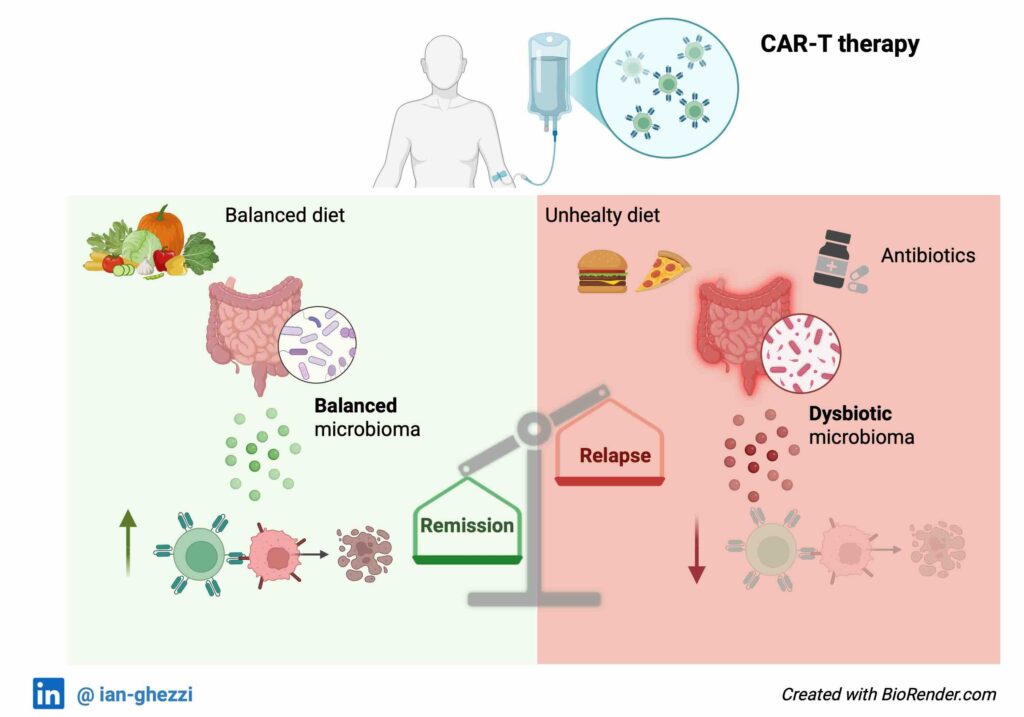💊 CAR-T & MICROBIOME
📜 Antibiotic Use, Microbiome, and Cell Therapy Outcomes (Blood Advances, 2025) https://lnkd.in/dN9Kjuii




📜Microbiome-Mediated Modulation of CD8+ T Cell-Mediated Anti-Tumor Immunity (Cell, 2025). https://lnkd.in/d5-Q-qXq














💊 CAR-T & MICROBIOME
📜 Antibiotic Use, Microbiome, and Cell Therapy Outcomes (Blood Advances, 2025) https://lnkd.in/dN9Kjuii




📜Microbiome-Mediated Modulation of CD8+ T Cell-Mediated Anti-Tumor Immunity (Cell, 2025). https://lnkd.in/d5-Q-qXq













